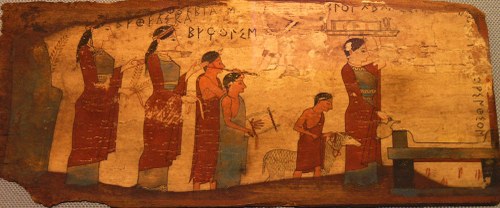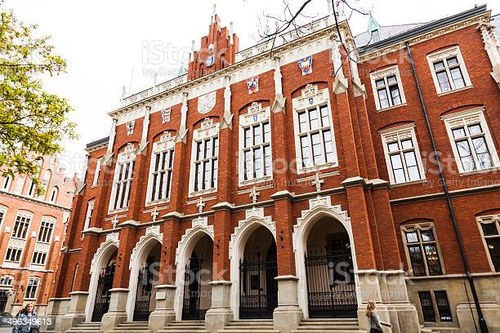Research Foresight Workshop - Krakow 1-2 February 2022
Lexical Change and Variation in Ancient Religious Enculturation/ Acculturation phenomena

The Research Foresight Workshop "Variation and lexical change in the phenomena of ancient religious inculturation / acculturation" aims to evaluate the results of the joint explorations that animated the first meeting of the project (Exploratory Workshop) which merged into the "Conference international Interdisciplinary paths of historical-religious research on the ancient world: themes, concepts, perspectives "(Bologna, 18-19 May 2021) and further research of the participants in the project.
The partners of the four universities involved will be responsible for identifying - with the support of future participants - the main themes that will be analyzed and then shown jointly. The research discussed in the workshop will be the result of a close collaboration between academic personalities with different disciplinary backgrounds and experiences, in line with the idea of collaboration and alliance established by the UNA Europa network. Future research funding opportunities will also be discussed for the construction and implementation of the LARES Conceptual Lexicon, conceived as a work in progress with long-term expected results (project - Excellence Initiative - Research University, Jagiellonian of Kraków and Erasmus + Blended Intensive Program, University from Bologna).

WORKSHOP SCHEDULE
SESSION 1:
Research Platform: Lexicon of the Ritual Terminology in Ancient Greek Religion (project – Excellence Initiative – Research University)
Tuesday, 1st February 2022, 16:00 – 18:00h PM
KRZYSZTOF BIELAWSKI, LECH TRZCIONKOWSKI (Uniwersytet Jagielloński): Presentation of the Project and Discussion
SESSION 2:
Works in Progress
Wednesday, 2nd February 2022, 9:30 – 12:30h AM
GAETANO SPAMPINATO (University of Fribourg), Actors, interpreters, hypocrites. Some reflections on hyprocrites in Imperial period
IOANNA PATERA (Uniwersytet Jagielloński), Autour du nom d’Éleusis et de ses associations
MARÍA FLORES RIVAS (Universidad complutense de Madrid), “And his soul left him”: The usage of ψυχή in the Early Greek Epic
LECH TRZCIONKOWSKI (Uniwersytet Jagielloński), Religious Terminology in Marinus’ Vita Procli. Tradition and Innovation in the Age of Transformations
SESSION 3:
Panel LARES – Lexicon of Religious Acculturation in Antiquity
Wednesday, 2nd February 2022, 15:00 – 17:00h PM
GIUSEPPINA PAOLA VISCARDI, IRENE VAGIONAKIS (Università di Bologna): Presentation of the LARES Lexicon Project
ANA JIMENEZ SAN CRISTOBAL, MIKA KAJAVA, LECH TRZCIONKOWSKI, GIUSEPPINA PAOLA VISCARDI: Final discussion and new perspectives of funding research: Digitizing a Lexicon. How to Work with Words in the Historico-Religious Research Field on Antiquity (Erasmus + Blended Intensive Programme)
Highlights
-
Workshop Schedule - Krakow - online
-
Link to Zoom Meeting
LARES Project-UNA EUROPA_RESEARCH FORESEIGHT WORKSHOP-Lexical Change and Variation in Ancient Religious Enculturation/ Acculturation phenomena
ID: 949 9617 6780
Passcode: 710620
Contatti
Lech Trzcionkowski
Organiser
The Institute of Religious Studies of the Jagiellonian University is the only center in Poland where one can undertake critical, interdisciplinary studies of religion - religious studies combined with comparative studies of culture.
Religious studies is a scientific discipline that was born as a result of the independence of research on religion from confessional theology. It is not a catechesis or theology. For a religious scholar, religion is not a profession of faith, but an intellectual challenge - a phenomenon that needs to be understood and explained.
Religion is one of the most important and complex elements of human experience, and by examining it we penetrate the world of human cultures. During our studies, we get to know different religions in their cultural contexts. We compare myths, rituals, institutions, incl. Christianity, Islam, Buddhism, Hinduism and traditional religions. We analyze texts and images, striving for a deep understanding of their content. We have the opportunity to learn the languages of great religious traditions in the past and today. We improve the ability to think clearly and logically and to conduct rational discussions. We write works in which we present the results of our own research. We are also considering the possibility of explaining religious experience using psychological methods, neurobiology or cognitive research.